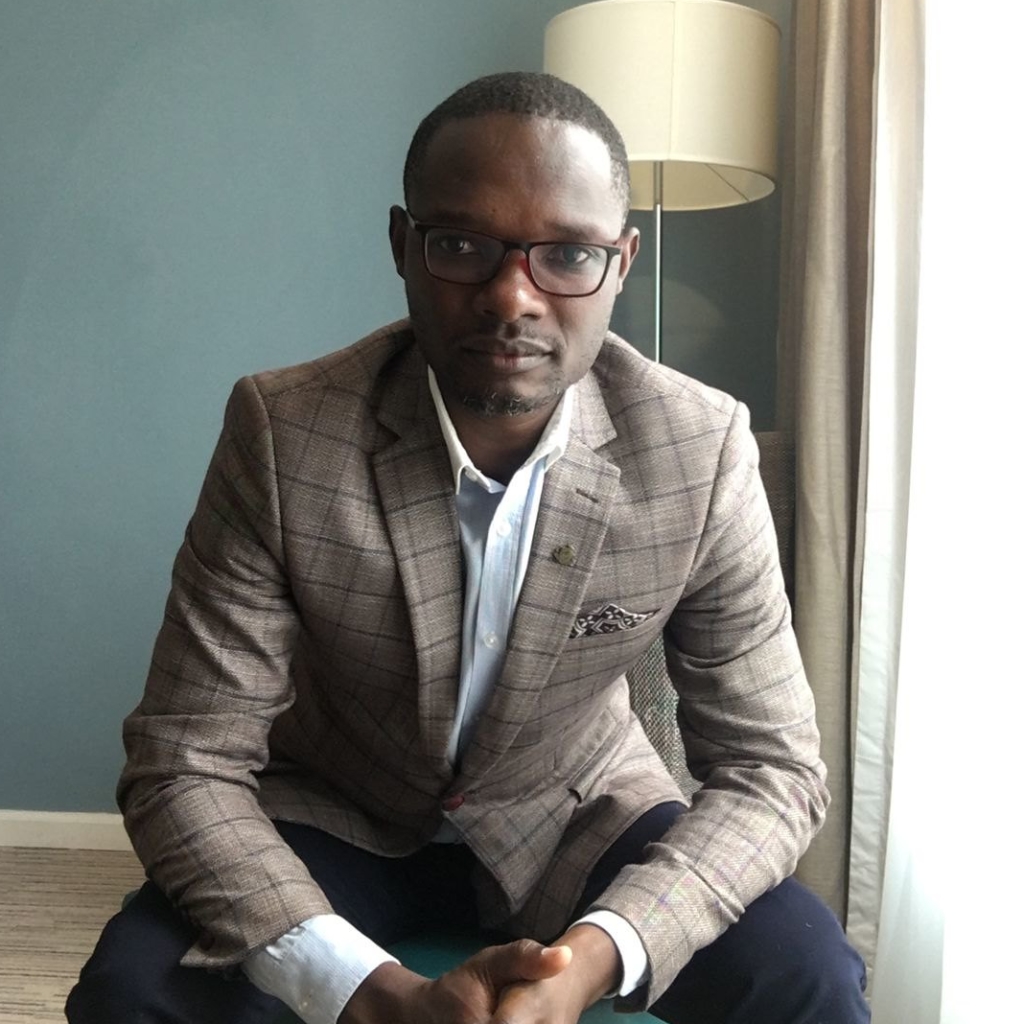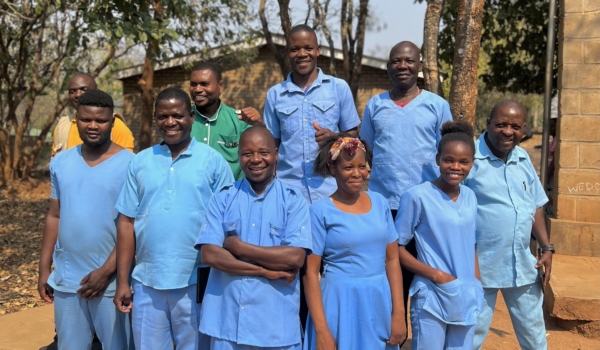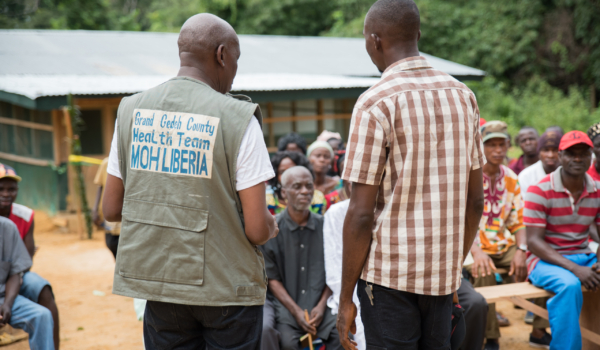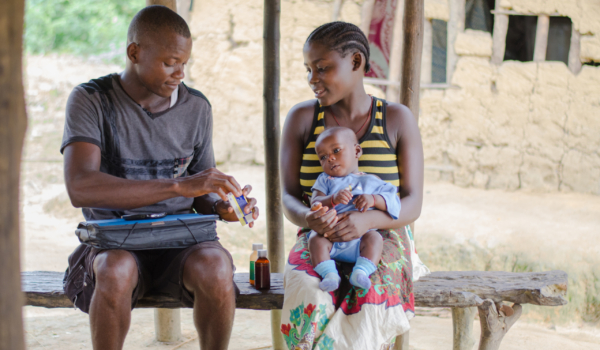This piece was originally published by mothers2mothers.
The 27th of February 2022 is World NGO Day—an international day assigned by the United Nations that recognises and honours non-governmental (NGO) and non-profit organisations, and the people working at NGOs to make this world a better place.
This special day was first commemorated in 2014 by the United Nations and the universal theme is ‘Celebrate, Commemorate and Collaborate’. Actors in the non-profit sector are encouraged to share their knowledge and experiences, inspire others to get involved, and to build stronger partnerships between NGOs and both the public and private sector.
World NGO Day 2022
For World NGO Day 2022, in this spirit of partnership, mothers2mothers (m2m) collaborated with one of our peers in the global public health sector—Last Mile Health (LMH), to shine a spotlight on the work they are doing to support community health workers in rural Malawi.
m2m Senior Communications Manager—Shanaaz Ebrahim, sat down with LMH’s Monitoring and Evaluation Officer in Lilongwe—Levison Nkhoma, who shared some insights about his job.
Shanaaz (m2m):
Tell us about yourself and about Last Mile Health (LMH).
Levison (LMH):
Thank you for the opportunity. At LMH, we partner with governments to build strong community health systems that extend primary healthcare to the world’s most remote communities.
Our desire is to strengthen the work government is already doing. In Malawi, government is delivering different health services. We focus on supporting their work in rural areas, ensuring that health workers have the supplies and the knowledge they need to deliver quality health care for these marginalised communities. We also provide training to improve their skills and knowledge on how to deliver critical health services, such as capacitating them with digital health tools.
Shanaaz (m2m):
How did COVID-19 affect your work?
Levison (LMH):
The past two years have been difficult for community health care workers. Most of them live and work in rural and hard-to-reach areas, and have limited access to resources and information. When they first heard about COVID-19, they were scared and the delivery of daily services was interrupted. It took organisations like LMH to step in and educate these health care workers about COVID-19 and how to protect themselves from contracting the virus. It was interesting because many health workers were so scared that they refused to step into a facility. Once we rolled out educational and awareness campaigns and distributed Personal Protection Equipment, things started improving.
Shanaaz (m2m):
How did you end up working in the NGO sector?
Levison (LMH):
To be honest, I never thought I would be working for an NGO. After graduating from college, I had this fancy idea to work in a big factory, or in a laboratory—I was a chemistry major. I found myself teaching mathematics and chemistry at a high school because of the limited work opportunities available. Ten years down the line, I saw a job ad at an NGO who was looking for a junior researcher which was something I wanted to do, and applied.
The journey so far has been amazing. It has given me the opportunity to contribute towards the growth and development of research. I’ve been involved in a number of research papers. I’ve also had the opportunity to work with many organisations in different portfolios, and to support the work the Ministry of Health is doing in Malawi.
Shanaaz (m2m):
What’s the best part of your job?
Levison (LMH):
I would say everything! I think to contribute to the development of my country…through research or implementing an intervention that improves a process gives me a lot of satisfaction. I like to be able to network and build strong partnerships with peers in the sector and in government. I can always call upon them if I need a data source, for example, and these are the things I value the most in my job.
Shanaaz (m2m):
What do you find the most challenging about working in this sector?
Levison (LMH):
There are several but I think one gap that I have seen and that really impacts me in my role as an M&E person, is general lack of data. For us to make an informed decision, we need accurate information. I found that many NGOs do not have a proper system in place or do not collect data. I am a very strong advocate for building data systems that should last beyond the lifespan of a project.
Another challenge is donor fatigue. NGO work is dependent on donor funds. If these funds are not coming in, you cannot move projects forward. COVID-19 has taught us that things can change in an instant, and that resources can be re-assigned in the event of an emergency. I think we need to always be vigilant in our space. We need to tell compelling stories and report accurately about our work so as to motivate donors to continue supporting work being done by non-profits.
Finally, I would say we need to make time to educate government stakeholders about the work NGOs do. There is often a lot of pressure placed on us to show results immediately. When designing interventions, expected outcomes and timelines from some parties can be unrealistic.
Shanaaz (m2m):
What are some of the common myths about working in the NGO you would like to dispel?
Levison (LMH):
There is this misconception that if you work in the NGO space, you will not have job security. I have been working in this sector for nearly 15 years. I enjoy what I do but you also need to bring your part. You need to be hardworking, results-focused, and have a passion for learning.
Shanaaz (m2m):
If you have one message that you would like to share with NGOs workers or supporters, what would that be?
Levison (LMH):
I have been in the health system strengthening space for the duration of my NGO career. It takes time to demonstrate results, especially for some health system interventions. The best departure point is to start with things that the government have already prioritised, aim for the low-hanging fruits, and in the process you will develop high-impact solutions.
So as NGO workers, let us as much as possible, avoid prescribing interventions beforehand. At LMH, we work together with our government counterparts and other NGO partners who are doing similar work because we want our work to be meaningful and synergistic to meet the needs of the communities we serve.
On the issue of mobilising resources for different work streams, we need to support sustainable interventions in the education, health, agricultural sectors. We should be working ourselves out of communities, and that they become self-reliant. Let’s work together to build the necessary infrastructure and identify the needs to make this a reality.





